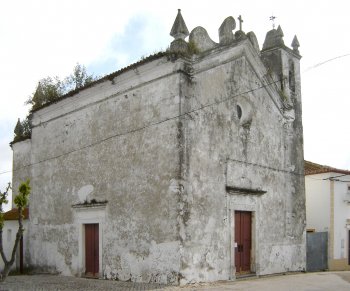Explore the best places
Monuments in Viana do Alentejo
Convento de Jesus
- heritage
Rua do Convento, 35
7090-256, Viana do Alentejo
Atualmente em remodelação, esta igreja conserva um teto de caixotões geométricos de estuque e mantém as portadas setecentistas almofadas e pregueadas a estanho. Foi o único convento de freiras da Ordem de S. Jerónimo em Portugal.
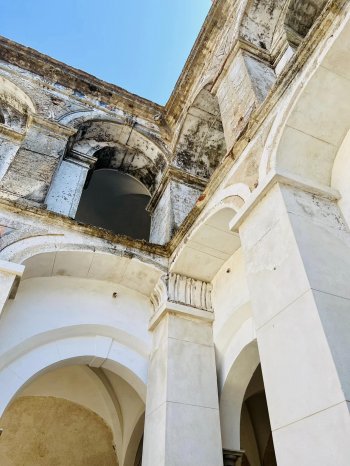
Palácio Fragoso-Barahona
- heritage
Rua do Relógio, 11
7090-048, Viana do Alentejo
18TH century Manor House. It was the seat of the former estate established by Martim Afonso de Melo, Bishop of Guarda.
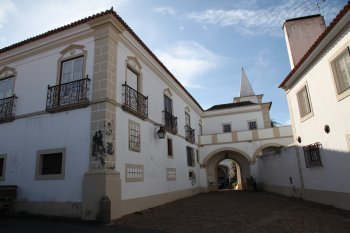
Anta de Aguiar
- heritage
Aguiar
7090, Viana do Alentejo
Also known as Anta do Zambujeiro, served as the location of the cult of the dead during the Neolithic period. Preserves the burial chamber, and the slab of coverage, even if knocked over.
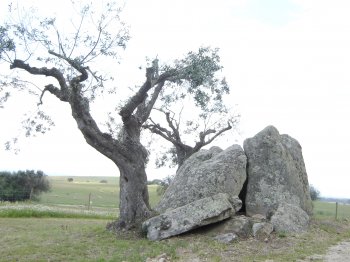
Santuário de Nossa Senhora de Aires
- heritage
Viana do Alentejo
7090, Viana do Alentejo
Longitudinal Nave divided into three sections, where are the arms of the transept and the two towers of the facade. The facade is impressive, marked by two bell towers, symmetrical sides. The coverage of the nave is vaulted back in one piece, the lighting is provided by Windows. The portal of entry of the Church, of 1755, is a thorough piece Rococo.
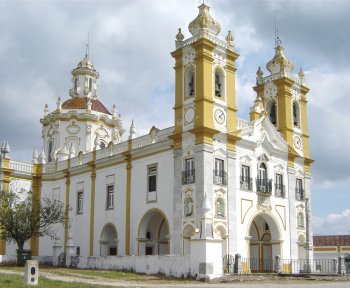
Igreja Matriz de Alcáçovas / Igreja do Salvador
- heritage
Estrada da Cruzinha
7090-025, Viana do Alentejo
This temple has three naves and Doric columns with three altars in golden carving Baroque style. The main chapel, covered up in glazed tiles still conserves the Mannerist altarpiece.
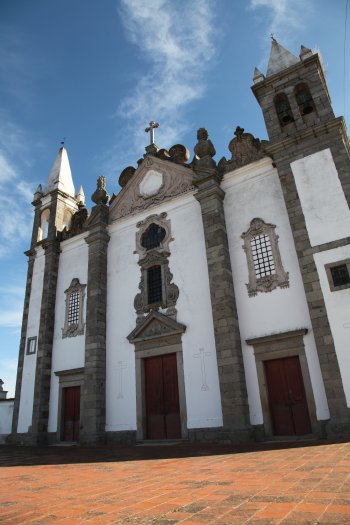
Paço Real da Vila / Paço dos Henriques
- heritage
Praça da República
7090-026, Viana do Alentejo
This is a 13th century building which was completely altered on the 14th century in order to São Jerónimo chapel be installed here. It has a plan composed by two elements articulation in rectangular plan perpendicularly disposed. The portico stands out and a small square opening on the basements and three windows with Manueline frames, of which one is a bay window. It is also worth to mention the stile stairs which give access to a small portico.
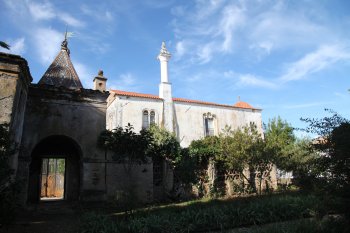
Igreja Matriz de Aguiar / Igreja de Nossa Senhora da Assunção
- heritage
Largo 25 de Abril, 8
7090-226, Viana do Alentejo
It is unknown if their exact Foundation. However, it is mentioned in documents from the year 1320 Regal. In the 17th century suffered major changes in architectural main elevation. It is a church with granite portal, adintelado, triangular pediment, crowned by stone cross, coruchéu in the far North and the robust acute Bell Tower opposite of masonry decorated by sgrafittos artistic, with two eyelets and an equal number of cast bronze bells, the oldest dating back to 1772.
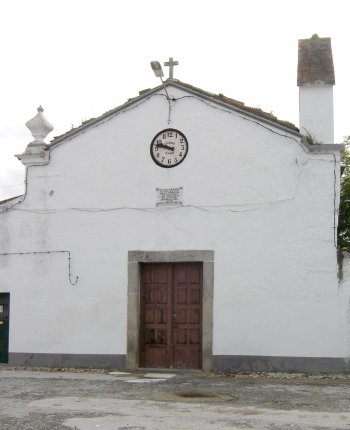
Castelo de Viana do Alentejo
- heritage
Largo de São Luís, 7
7090-271, Viana do Alentejo
Originally called "Viana of the pair of Alvito", the village was resettled in the 13th century by d. Gil Martins. In 1313, King Denis granted a Charter and privileges and ordered the construction of the Castle, which, rebuilt by King John II, still maintains the characteristics of the initial project. It is a monument of pentagonal plant whose angles stand cylindrical towers with cruciform arrow slits.
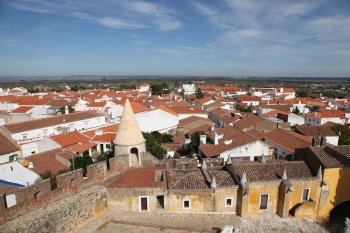
Igreja Matriz de Viana do Alentejo
- heritage
Travessa das Torres, 10
7090-268, Viana do Alentejo
This is a Manueline building with mudejar influences done by Diogo Arruda. This church has a large nave with a minuscule apse which is sided by two small chapels. The main façade is torn by an ample Manueline doorway and by small openwork with a perfectly vaulted arch. It is decorated with wall paintings from the 18th century. On the inside the church is divided in three naves with 5 bays with the apse almost fitting on the vestment.
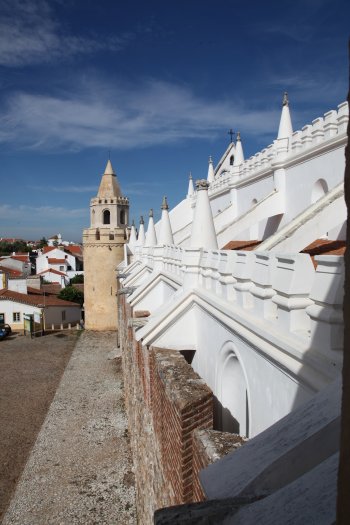
Ermida Nossa Senhora da Piedade
- heritage
Rua Bento de Jesus Caraça, 19
7090-411, Aguiar
Chapel of popular architecture, being modest and with thick masonry plastered. It is prized by two portals carved in white marble and protruding rope type door jambs. Note also the frescoes from the 17th century and beginning of the 19th century in the vault of the chancel. It is also known as the Lord's Chapel of Senhor dos Passos or Wounds.
